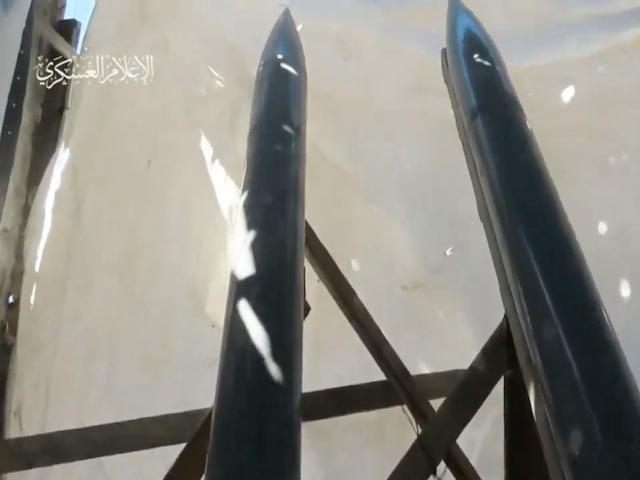Hamas has declared that it will abstain from participating in the upcoming cease-fire negotiations with Israel scheduled for Thursday over Israel's refusal to accept a prior Hamas proposal that was deemed unacceptable by the Jewish State. The militant group said their decision is a response to what it described as "a lack of concrete assurances from Israel to negotiate based on a previously proposed agreement from July 2."
Ahmad Abdul Hadi, Hamas' representative in Lebanon, misleadingly announced that despite the group's previous flexibility in discussions, recent aggressive actions by Israel, including the assassination of senior Hamas leader Ismail Haniyeh in Tehran, have compelled them to withdraw from the talks. Haniyeh, a pivotal figure in the cease-fire negotiations, was killed in a targeted operation that has significantly escalated tensions. Hamas to date has rejected every Israel, Qatari, Egyptian and U.S. proposal, insisting that any deal ensure a full Israeli withdrawal and commitment to reimburse for all expenses incurred with rebuilding the Gaza infrastructure. Israel sees these demands as a non-starter, handing Hamas a victory and costing Israelis billions for defending themselves against an aggressive, hostile force.
The gravity of the situation is further amplified by U.S. President Joe Biden's suggestion that a potential Iranian attack on Israel could be deferred if a cease-fire deal is reached. Iran had vowed retaliation for Haniyeh's killing, and Hezbollah, Iran’s proxy in Lebanon, has also pledged revenge for the assassination of its military commander, Fuad Shukr. Despite this, Iranian officials have indicated a possible postponement of their response to allow diplomatic efforts to proceed.
Hamas Accuses Israel of Deception and Aggression
Ahmad Abdul Hadi elaborated on Hamas' stance according to to Sky News, asserting that the group is not fundamentally opposed to cease-fire talks, despite their unwillingness to compromise on their demands. Yet, he criticized Israeli Prime Minister Benjamin Netanyahu for allegedly lacking genuine interest in reaching an agreement that would fully end hostilities. Abdul Hadi accused Netanyahu of using the negotiations as a smokescreen to continue and potentially expand Israel's military actions against the Palestinian people.
'We have seen so many rounds of ceasefire talks start and then fail.' @AliBunkallSKY is live in Jerusalem with the latest on the Israel-Hamas war. He adds 'people are not getting ahead of themselves with the ceasefire talks'
— Sky News (@SkyNews) August 14, 2024
https://t.co/or3lO58gsC
📺 Sky 501 amd YouTube pic.twitter.com/qcmOGZ6WVl
Hamas has made it clear that it demands a "clear commitment" from Israel to the cease-fire proposal they put forward in July, which includes an immediate halt to hostilities and the withdrawal of Israeli forces from Gaza cities before any talks about hostages can resume. The militant group has expressed deep resentment over what it perceives as Israel's introduction of new conditions and the assassination of Ismail Haniyeh, alongside a recent attack on a school compound in Gaza City that took out close to 20 Hamas and Islamic Jihad leaders who were embedded amongst civilians. A rocket fired towards Tel Aviv on Tuesday was launched from a makeshift tent within a designated humanitarian zone according to a video released on Gaza-based Telegram channels. This launch highlighted the fact that Hamas has been using civilians and their safe zones to continue their Islamist terror campaigns.
US and Qatari Efforts to Mediate
The negotiations, slated to occur in Qatar, are seen as a crucial chance to secure a lasting cease-fire and facilitate the release of hostages held by Hamas since October 7. American mediators, including Brett McGurk and special envoy Amos Hochstein, have been actively working to de-escalate the situation and avert a broader regional conflict. Despite these efforts, Israeli Prime Minister Benjamin Netanyahu's office has confirmed Israel’s participation in the talks, though internal disputes regarding the negotiation terms persist. Defense Minister Yoav Gallant emphasized Israel's readiness to defend itself against any potential threats from Iran and its allies.
Hamas invades Israel to murder the most Jews since the Holocaust, continues to hold hostages—even Americans—and repeatedly rejects ceasefires.
— Tom Cotton (@TomCottonAR) August 13, 2024
Yet the liberal media blames *Israel* for talks “breaking down.”
Disgraceful.
Adding to the diplomatic turmoil, US Secretary of State Antony Blinken has postponed his trip to the Middle East amid the uncertainty surrounding the situation. Meanwhile, Hamas escalated tensions by launching two rockets aimed at Tel Aviv for the first time in months, signaling their discontent and readiness to continue their militant activities.
Humanitarian Crisis and Regional Stability
The prolonged conflict has taken a devastating toll, with the Palestinian death toll in Gaza nearing 40,000, according to the Hamas-run health ministry. Israeli Prime Minister Netanyahu has reiterated Israel's objectives in Gaza: to dismantle Hamas's "governing and military capabilities" and to secure the safe return of Israeli hostages.
As the international community watches closely, Qatar's role as a mediator becomes increasingly critical. The US State Department has expressed confidence in Qatar's ability to persuade Hamas to rejoin the peace talks. Vedant Patel, a spokesperson for the State Department, emphasized Qatar's commitment to ensuring Hamas's representation in the negotiations.
.@TSoufiBurridge reports from the region as Hamas rejects new ceasefire talks. It comes while the IDF announces it is expanding operations in southern Gaza. https://t.co/yLXpAIFcsi pic.twitter.com/6aqpC0zMcQ
— World News Tonight (@ABCWorldNews) August 12, 2024
With more than ten months of intense fighting, the stakes have never been higher. The outcome of these negotiations could significantly impact regional stability and the future of Israeli-Palestinian relations. The world waits with bated breath as diplomatic efforts continue to seek a path towards peace amidst a landscape marred by conflict and suffering.


